JAY RAMSAY has collaborated with Martin Palmer on a number of Chinese texts as a poet since 1991. Author of The White Poem, Alchemy, Kingdom of the Edge, Crucible of Love, The Poet in You, and Out of Time, he also works as a psychotherapist in private practice and runs poetry and personal development workshops worldwide. His latest collection is Monuments.
Note on the Translation
In undertaking any translation, the translator is as much an interpreter as a literal translator. In trying to make the images, myths, legends, proverbs and styles of a completely different culture accessible, you have to interpret as much as translate. In this translation I draw attention to this with the very first line of the first chapter, as I have mentioned above. The literal translation would be along the lines of It is said that if we investigate back into antiquity. I have chosen to interpret this as the beginning of a story about the ancient past and its heroes, so have used the phrase Long, long ago as a way of opening a story about the distant past which will be familiar to Western readers. It is perhaps also worth pointing out that ancient Chinese is terse. The first line contains only four characters from which any translator or indeed native speaker has to construct meaning.
I have also rearranged the order of paragraphs where the meaning becomes clearer by using a more traditional, Western way of constructing a paragraph. This has meant that at times I have moved a line or two from near the beginning of a paragraph or from the middle and put it towards the end as this enhanced the meaning of the paragraph.
Occasionally, as I did in my translation of Chuang Tzu (Zhuang Zi), I have not translated every name if that name only appears once and has no particular relevance or role. This applies to some personal names as well as occasionally a place name.
What became clear as we worked on the translation is that there are distinct sections where a rhythm is discernable which indicates either a poem per se or a text which through oral
Therefore I have reflected this in the translation and not treated every sentence as if it had no distinctive pattern, which is what other translations have tended to do. In discerning these patterns of poetry and prose, we have sought to bring to life texts which come from many different centuries, many different hands and which have very many different styles between them, from heroic saga to bureaucratic lists, via official documents of policy. I am grateful to Jay Ramsays poetic and prose reworking of some of the key sections, which inspired me to see similar patterns in other sections of the book.
In so doing I hope we have been able to breathe life again into a text which through Confucian conformity and the pressures of rote learning had come to be seen as worthy but perhaps rather dull. It is not. It is as diverse and fascinating as any ancient collection of texts be that the Bible, the Rig Vedas or the Babylonian texts. It is also still an invaluable guide to how to live a virtuous life and how to interpret our place within a moral cosmos. And perhaps it can once again play a role in restraining or removing bad rulers who offend against Heaven and do nothing to help the lives of the ordinary people.
Martin Palmer
Easter Sunday, 2014
The Poet and the Text
In a book of such antiquity, it is useful to reflect on how its contents would have been received as a living word, learned by heart, and also (as Martin Palmer has indicated) ritually performed on an anniversary basis. The equivalent in our own culture would certainly be closer to drama and liturgy than prose; for example, in the medieval Mystery Plays. For us working on this book, this spoke of poetry in an oral context; and also as a result of our previous work together on the Chinese Classics in the mid-1990s when we found such patterns in the Tao Te Ching (Dao De Jing), the I Ching (Yi Jing) and the 100 quatrains of Kuan Yin.
Some of this text here is anyway overtly poetry (The Lament of the Five Sons); some gaps of lost text may well have been filled with material from the contemporaneous Book of Songs, but also, as Martin noted on close inspection, the irregular beat of 4, 4, 4, 4, 5 infuses a whole series of wisdom sayings that are scattered like pearls through the narrative.
And in an early chapter (two), as the Emperor speaks to Kui, we find explicitly this:
Show them that poetry is the way
to express their deepest feelings
shared also through its singing
where the notes can harmonize
with the feelings evoked
So to bring this material alive as it deserves for a modern readership, both orally and on the page, we felt that poetry at points as strategic relief in all the more lyrical moments he could find within its more prose-orientated essential statements of morality.
There are two kinds of poetry in our translation here overall. The first is reflective, philosophical and metaphysical, concerning statements about the Dao (or Way), De (virtue), about Heaven as the first principle behind everything (and always above and beyond the ruler or emperor), the Five Elements and the other elemental building blocks of the Chinese universe. For example (in ), in wisdom that prefigures the Dao De Jing:
Where virtue is, order is there too.
Where virtue isnt chaos.
Follow the design of order and all will go well.
Ignore it and it will end in disaster.
A wise ruler is constantly thoughtful in what he follows.
The second involves speeches made by key characters, often in dialogue, sometimes as dramatic monologue. A striking example is from the Viscount of Wei in :
Now disaster is poised to come down

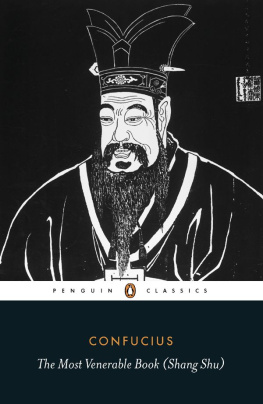


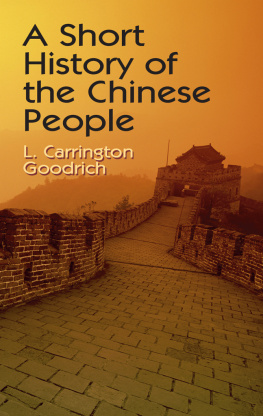
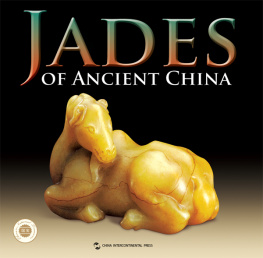
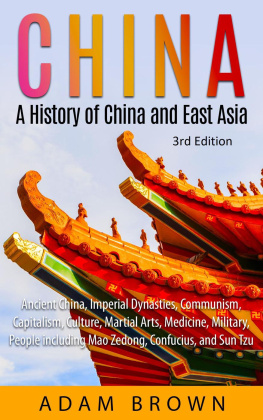
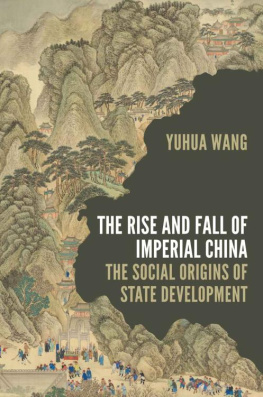
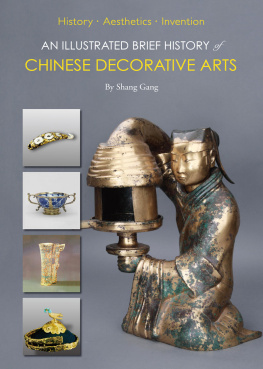
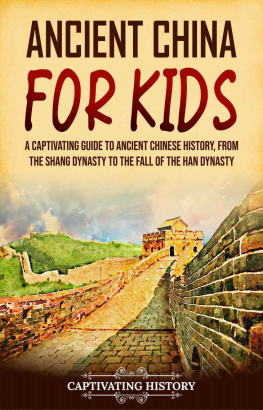
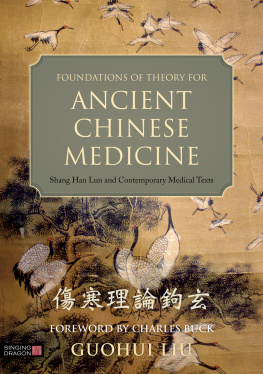
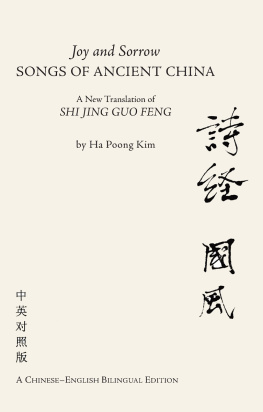
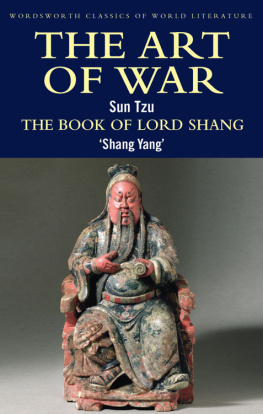



 CLASSICS
CLASSICS